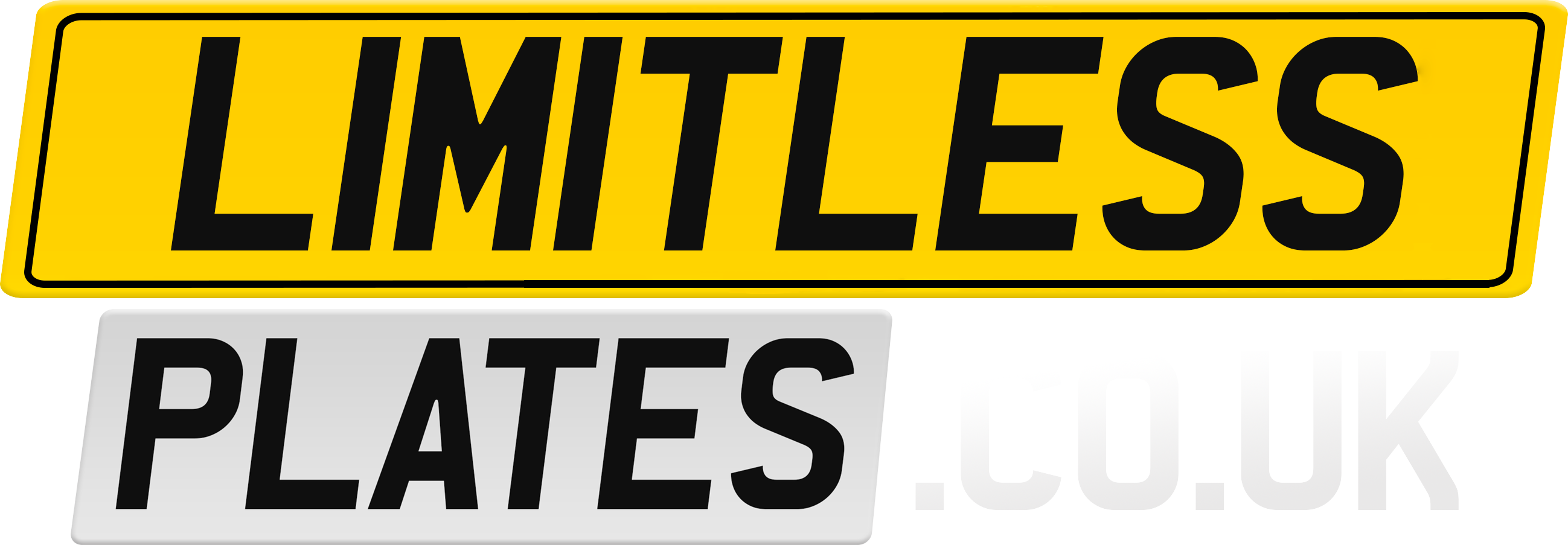Are 4D and 3D Number Plates Road Legal?
Are 3D Number Plates legal?
3D number plates use raised characters to create a three-dimensional effect. These plates are legal as long as they adhere to the following DVLA requirements:
- The characters must be black on a white background for the front plate and black on a yellow background for the rear plate.
- The plates must be made from a reflective material.
- The font, size, and spacing of the characters must comply with DVLA regulations.
For more detailed information on the specifications, you can visit the DVLA's website.
Are 4D Number Plates legal?
4D number plates take the 3D effect further by using laser-cut acrylic characters for an even more pronounced raised effect. Like 3D gel plates, 4D gel plates are also legal under the following conditions:
- They comply with the color, material, font, size, and spacing requirements as outlined by the DVLA.
- The plates do not use any background pattern or images that could obscure the readability of the characters.
It's crucial that both 3D and 4D plates do not hinder the visibility or legibility of the number plate from any angle. This means that while the raised effect is permitted, it must not prevent the plate from being read easily by the naked eye or ANPR (Automatic Number Plate Recognition) systems.
For further guidance and the latest updates on number plate regulations, always refer to the DVLA guidelines.
Are Tinted number plates legal?
No, tinted number plates are not legal in the United Kingdom. Number plates must be made from a reflective material that allows them to be easily read in daylight or under headlights at night. Tinted number plates can make it difficult to read the registration number, especially in low-light conditions, which is a safety concern on the road.
Additionally, the characters on the number plates must be displayed in black on a white background on the front plate, and in black on a yellow background on the rear plate. This is to ensure maximum contrast and readability. Any deviation from these requirements, including the use of tinted materials, could result in a fine or penalty points on the driver's license.
Therefore, it is important to ensure that number plates are purchased from a reputable supplier and meet the relevant specifications set out by the Driver and Vehicle Licensing Agency (DVLA) to ensure compliance with the law.
Will I Get Fined For Tinted Number Plates?
Yes, if you use tinted number plates on your vehicle in the UK, you could be fined and issued penalty points on your driving license. The use of tinted number plates is illegal in the UK, as it makes it difficult to read the registration number, which can be a safety hazard on the road.
If you are stopped by the police or other authorities and found to be using tinted number plates, you could receive a fine of up to £1,000, and your vehicle may fail its MOT test or be considered unroadworthy. Additionally, using illegal number plates could also invalidate your insurance policy, leaving you liable for any damages or legal costs in the event of an accident.
Therefore, it is important to ensure that your vehicle's number plates meet the legal requirements set out by the Driver and Vehicle Licensing Agency (DVLA), including the use of a reflective material and the correct font, size, and spacing for the characters. This will help you avoid fines and penalties and ensure that you are driving legally and safely on UK roads.









